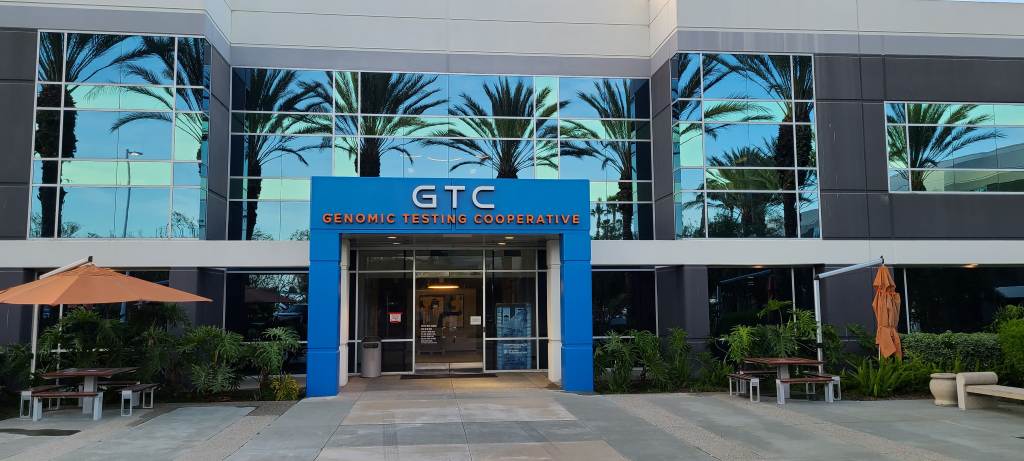
Genomic Testing Cooperative (GTC) is expanding into the European market by partnering with German laboratory Labor Dr. Wisplinghoff.
“Our diagnostics tests going out of the U.S. to Europe is democratizing science,” Chief Executive Dr. Maher Albitar told the Business Journal.
GTC was founded in 2018 by Albitar, who has extensive experience leading research and development at large labs such as Quest Diagnostics and is a tenured professor at the University of Texas MD Anderson Cancer Center.
The Lake Forest medical diagnostics company is entirely focused on cancer. It commercializes a portfolio of tissue and liquid biopsy tests for blood cancers and solid tumors, which are covered by Medicare via Palmetto GBA.
GTC bought a new 40,000 square foot building in Lake Forest last year after outgrowing its previous space, a roughly 12,500 square foot suite it was leasing from the Irvine Company in Irvine.
“After sustainable and constant growth throughout the years, we just ran out of room,” Chief Commercial Officer Arie Shen told the Business Journal.
Collaborative Business Model
GTC’s business model is built on partnerships with other labs, hospitals and practices.
There are no other diagnostic companies using the same model, according to Albitar. He calls the partner facilities satellite labs.
Under the partnership, GTC trains the satellite labs on how to use GTC’s technology in their own wet labs.
GTC was established as a way to support labs looking to do next-generation sequencing, which can be costly and risky for smaller labs, according to its website.
Albitar said the “beauty” of a collaborative model is the sharing of information and resources.
When partner labs provide GTC with data resulting in new intellectual property, they also share in the revenue.
“It is collaborative on the research and development and collaborative on the business,” Albitar said.
The new partnership with Labor Dr. Wisplinghoff brings GTC’s total number of satellite labs to eight, including San Francisco’s HALO Precision Diagnostics and Baltimore-based biotech firm Sysmex Inostics Inc., a subsidiary of Sysmex Corp. in Japan.
One of GTC’s long-term goals is to continue adding more satellite labs and expand into other regions such as South America, the Middle East and Asia, Albitar said.
Changing Diagnostics Paradigm
“What we are trying to do is change the paradigm in diagnostics,” Albitar said.
He said that methods such as immunohistochemistry, flow cytometry and karyotyping used by some diagnostic companies can all be replaced with genomics and artificial intelligence for more precise diagnoses.
About 10% of cancer cases are misdiagnosed, according to Albitar.
“That’s mainly because it depends on subjective tools,” he said.
He said that cancer, by definition, is a genomic disease caused by abnormalities. Based on this idea, GTC goes to the source and analyzes the person’s DNA and RNA.
What the company does is extract the DNA and RNA from either the blood or biopsied tissue samples, then sequences it and analyzes it with their AI software.
Genomic testing generates large amounts of data. Each sample, for instance, can generate nearly one gigabyte’s worth of data.
The entire process to generate a clinical report can take between seven to 10 days maximum, Albitar explained.
